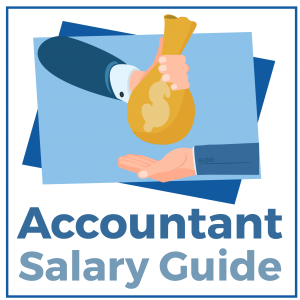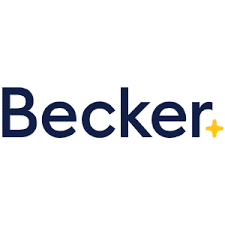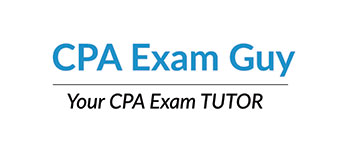
Accountants are responsible for providing valuable financial information to companies to help them operate efficiently. This typically involves keeping accurate financial records. Consequently, an accountant salary can be quite lucrative.
On a daily basis, accountants are responsible for tracking revenue and expenses, along with handling payroll and paying bills. Additionally, accountants may also be responsible for preparing profit and loss statements, balance sheets, and other types of financial reports.
How Much Do Accountants Make?
Successful businesses now increasingly rely on the strong skills of accountants, which is one reason an accountant average salary is so high compared to many other occupations. This is largely because accountants usually have a better understanding of the complex finances of the company than other employees do. Consequently, accountants are responsible for not only reporting finances but also offering advice regarding tax strategies and budget forecasts.
A related occupation, auditors are responsible for examining financial data and accounting procedures to ensure compliance and accuracy. Furthermore, auditors are responsible for identifying any improper research and documentation. An auditor may also make recommendations to improve procedures and policies. In many cases, an auditor salary can also be quite lucrative.
Both accountants and auditors should be detail oriented. The job tasks associated with both professions are far more diverse than simply solving math problems. Interested individuals should have strong math skills and enjoy performing analyses. These professions also require strong verbal and written communication skills. Overall, the professions of accountant and auditor blend problem-solving, analysis, and even detective work.
Ultimately, the demand for both auditors and accountants is quite strong and expected to grow much faster than the average growth rate for all other occupations.
See the Top CPA Review Courses
- Becker CPA Review Course ◄◄ #1 Rated CPA Prep Course of 2024
- Surgent CPA Prep Course ◄◄ Best Adaptive Technology
- Gleim CPA Review Course ◄◄ Most Practice Questions

Day-to-Day Tasks of an Accountant
As a career that requires an analytical mindset, an accountant offers accurate financial record reporting and in-depth analysis of financial matters. This occupation often serves in a supporting role to a company’s chief financial officer. An accountant may also work with private individuals to review tax records. Individuals who are trained as accountants may choose to work for a variety of different size companies in either the private or the public sector. Additionally, accountants may opt to work independently in their own firms. Some accountants also work as consultants. The average accountant salary will vary based on the career path an individual chooses to pursue.
The auditing and accountant occupation has four major fields. The type of work performed by accountants and auditors is largely based on the field in which they choose to work.
Accountant Management
Management accountants typically work in teams. The responsibility of a management accountant is to provide analysis and information to executives for decision-making purposes. This information may also be used by executives to prepare important financial reports that need to be distributed to creditors, shareholders, the Internal Revenue Service, and regulatory agencies.
Government Accountants and Auditors
Accountants may also be employed by governments on the federal, state, and local levels. Accountants employed by governments typically handle government books as well as auditing individuals and businesses to ensure they are complying with government regulations. The Internal Revenue Service may employ some accountants. Others may be tasked with auditing various governmental organizations.
Public Accountants
The largest accountant field is that of public accounting. Public accountants are responsible for providing tax, accounting, consulting, and auditing services for corporations, governments, individuals, and nonprofit organizations. A public accountant may be a Certified Public Accountant but could also simply provide tax preparation services for individuals and businesses.
Internal Auditors
The task of an internal auditor involves a significant amount of detective work. Internal auditors examine an organization’s internal controls and investigate to detect mismanagement, inaccuracy, and fraud.

Alternate Career Paths
Persons interested in the accounting field but looking for a more exciting career path might consider one of the following options:
Forensic Accounting
A forensic accountant is responsible for detecting financial fraud and seeing to it that those committing financial fraud are put in prison. Each year, companies lose a significant amount of money due to such fraud. As a result, forensic accounting is one of the fastest growing sectors in the field of accounting.
Environmental Accounting
The field of environmental accounting is one that has continued to grow at a steady rate over the past few years as more and more specialized accountants are needed to analyze the costs associated with pollution prevention. These costs are often compared fines, missed tax credits, etc.
Showbusiness Accounting
Some accountants specialize by providing financial services to production companies, studios, technicians, and artists. Accountants employed in this field often handle traditional areas of accounting, such as audits, taxes, and financial analysis, yet at the same time, they can work in an exciting and glamorous field.
Trustee in Bankruptcy
A trustee in bankruptcy is an accountant who has been appointed by the U.S. Department of Justice to serve in bankruptcy cases for the purposes of making certain that unsecured creditors receive proper representation.
Learn More About The CPA Exam
- The Ultimate Guide To The Audit Exam
- CPA Salary Guide: How Much Can You Make?
- CPA Exam Sections & Testing Windows
- 43 FAQ's for CPA's
- Top International Destinations to Take the CPA Exam

Accountant Work Environments
The accounting field typically tends to be a 9-5 job; however, there are certain time periods when longer hours may be required. This is particularly common during tax time. Accountants who are self-employed may need to work longer hours during tax time than accountants employed in other sectors. Most accountants work in an office environment, but those who specialize may need to spend some time traveling. This may often be the case for auditors.
When considering whether the accounting field is the right choice, it’s important to understand that many accountants must often deliver unwelcome news to individuals or companies who have mishandled their finances. Even so, this profession typically has a relatively high level of satisfaction.
Accounting Education and Training
To become an accountant or auditor, you will typically need at least a bachelor’s degree in finance, accounting, or a related discipline. To obtain an entry-level accounting position in the federal government, you will generally need a bachelor’s degree that includes a minimum of 24 semester hours in auditing or accounting. Some employers may prefer to hire accountants with a master’s degree in business administration, accounting, or finance.
An auditor who has graduated from an accredited university or college, has at least two years of experience working as an internal auditor, and has passed the requisite exam may earn the designation of Certified Internal Auditor. The Institute of Internal Auditors grants this designation. Additionally, individuals with five years of experience in the field of auditing electronic data processing systems and who has passed the required exam may be able to earn a Certified Information Systems Auditor designation.
All CPAs are required to obtain continuing professional education to renew their licenses. The continuing professional education requirements vary according to the state in which the individual works. In most cases, the individual is required to obtain a certain number of hours. These hours of continuing education can usually be obtained through professional associations that offer CPE hours in the form of seminars, courses, and programs.
Get The Best Discounts On Your CPA Review Course!

Flash Sale – $1,350 Off Surgent CPA Ultimate Pass

Enjoy $1,200 Off Surgent CPA Ultimate Pass
Path to Becoming an Accountant or Auditor
The first step in becoming an accountant or auditor is to select an accounting degree or associated degree from an accredited college or university. Such programs are widely available at numerous universities and colleges throughout the U.S. Additionally, these programs can also now be completed through a variety of distance learning programs. However, individuals considering enrolling in an accounting or finance program should always verify that the program is actually accredited prior to enrolling.
Choosing a Specialty
Almost all accountants specialize in at least one area of practice. The two main specialization areas are corporate/business accounting and public accounting. There are also numerous sub-specializations, including internal auditing, environmental accounting, taxes, and managerial accounting.
Accountant or CPA
Beyond choosing an area of specialization, interested candidates will also need to understand the difference between a Certified Public Accountant and an accountant to choose the career path that best suits their career goals. Accountants, also known as public accountants, usually work in the accountant department of a business. Public accountants do not have the qualifications of a Certified Public Accountant. For instance, an accountant usually does not possess licensure or state certification. As a result, accountants are limited to performing certain tasks. These tasks may include preparing financial statements. If an accountant has received a Preparer Tax Identification Number or passed the required IRs test, he or she may also prepare taxes. However, accountants may not review financial statements or conduct audits.
By comparison, a Certified Public Accountant must meet various requirements. These requirements include passing all parts of the CPA exam after earning a college degree. Additionally, individuals interested in becoming CPAs must work for a specific number of hours under a licensed CPA. As a CPA, individuals may perform the same tasks as those of a public accountant along with reviewing statements, conducting audits, and representing clients in matters related to the IRS.
In determining whether to become an accountant or pursue a career as a CPA, it’s important to consider whether you are willing to put in the additional time and effort required to become a Certified Public Accountant.
Passing the CPA Exam
Accountants must become Certified Public Accountants to file reports with the Securities and Exchange Commission. In all states, candidates are required to pass a four-part CPA exam to become a Certified Public Accountant. The four parts of the exam are:
- Audit and Attestation
- Financial Accounting and Reporting
- Regulation and Business Environment
- Concepts
The American Institute of Certified Public Accountants prepares the CPA exam and designs it to be a challenging barrier to career entry. Consequently, the BLS reports that less than half of the individuals who sit for the exam pass all four parts of the test on the first try.
This exam is available to be taken during the first two months of each quarter. Candidates may choose to take the exam in any order they would like. Once one part of the test has been passed, the candidate must pass the remaining three parts of the exam during the next 18 months. Typically, many CPA test candidates choose to prepare for the exam by enrolling in a private exam prep course.
Obtaining an Entry-Level Job
Prior to graduating, it’s a good idea for candidates to obtain an internship that will allow them to gain experience to be placed on his or her resume. Candidates should create a resume as well as consider creating a professional profile on social media sites like LinkedIn. Such sites typically offer online job postings, which can make it much easier for candidates to apply for entry-level jobs. Furthermore, colleges and universities also usually provide job listings and networking opportunities to assist new graduates in landing their first jobs.
Continuing Education
After accountants obtain their first jobs, it’s still important to think about ways to expand one’s career opportunities. Ways to do this include earning a master’s degree in accounting or a certification in an accounting specialization. Additionally, new accountants may wish to consider beginning to prepare to take the CPA exam.
Obtaining advanced accounting certifications is vital in order to assist individuals in becoming experts in the accounting field. Other possible certifications include the Certified Public Bookkeeper certification, the Certified Internal Auditor certification, Certified Information Systems Auditor, Certified Fraud Examiner, Accredited Business Accountant, and the Certified Management Accountant certification. There are prerequisite requirements for each designation, including career experience and education requirements. Hence, in order to maintain these designations, it’s usually necessary to meet continuing education requirements every few years.
It should be kept in mind that while the accounting field is vast, a bachelor’s degree in business, finance, or accounting is typically required to land an accounting job. However, some entry-level accounting jobs may not be as strict and require only an associate degree. Even so, to obtain a job as an accountant in a mid- to senior-level position, a graduate-level degree is usually necessary
Skills Required to Be an Accountant
To be successful as an accountant, it’s important to have more than simply the right degree or designation. Hence, the accounting field is best suited for persons who can process information in an analytical manner. It’s also important for candidates to have high attention to detail for the purposes of reviewing records and financial statements. Furthermore, being proficient in accounting software can also be beneficial to this career. Since accountants must report to other departments and share their analysis, it’s also important to have strong interpersonal and communication skills in this career field.
On a daily basis, accountants must perform the following tasks:
- Prepare and examine financial records
- Maintain and organize accurate records
- Compute taxes
- Prepare tax returns
- Ensure payments are made in a prompt manner
- Assess financial operations
- Ensure financial statements follow regulations and laws
- Make recommendations for enhancing revenues, reducing costs, and improving profits
Since accountants are vital to helping businesses and individuals keep their financial affairs in order, they are often in high demand.
You might be a suitable candidate to become an accountant if you are:
- Good with numbers
- Computer savvy
- Goal-oriented
- Enterprising
- Analytical
- Highly organized
Additionally, you should possess the following skills:
- Clerical skills
- Attention to detail
- Strong math skills
- Able to focus
- Able to collaborate with others
Importance of Ethics in the Accounting Field
Individuals who are considered entering the accounting field should also understand that this profession requires strong ethics. The principles required for this profession generally include:
- Confidentiality
- Professional competence and due care
- Objectivity and lack of bias
- No conflict of interest
- Integrity in business and professional relationships
- Avoid actions that might discredit the accounting profession
Accountants must be able to perform with professional ethics in everything they do in the workplace. Therefore, strong ethics are just as important to the accounting profession as a designation or degree. In many cases, professional accounting organizations require their members to keep to a professional code of ethics. This is true of both the Institute of Management Accountants and the Institute of Internal Auditors. The Institute of Management Accountants is the national organization for accountants who work in government and industry. Accountants who provide internal auditing services for various organizations may belong to the Institute of Internal Auditors.
As part of the process of becoming an accountant, it’s important to learn how to remain free from questionable business practices and conflicts of interest. Hence, students planning to become professional accountants will also need to learn due care to properly understand financial information, be diligent, and competent in how to use knowledge.
Accountant Salary
What is the typical entry-level accountant salary? Individuals interested in becoming accountants can usually expect their salary to increase with experience and qualifications. The Bureau of Labor Statistics reports that the national average accountant starting salary is about $31,000 per year. Those individuals with experience can expect to earn a senior accountant salary of over $100,000 per year.
It should be noted that accountants working for medium to large companies typically do not earn commissions or bonuses. With that said, accountants at this level may be able to take advantage of a variety of benefits, including group health insurance, retirement plan contributions, or even reimbursement for childcare. Furthermore, accountants who work for large companies may also find they are able to benefit from reimbursement for earning job-specific certifications. Earning these types of certifications can help an accountant to boost their junior accountant salary.
Average Accountant Salaries by Years of Experience
The below chart shows information about the average starting salary for accountants as well as what one can expect for other accounting salary ranges, including the average senior accountant salary.
| Level | Years of Experience | Accountant Median Salary |
| Accountant 1 | 0–2 years of experience | $36,000 |
| Accountant 2 | 2–4 years of experience | $43,000 |
| Accountant 3 | 4–6 years of experience | $52,000 |
| Accountant 4 | 6–8 years of experience | $63,000 |
Bookkeeper Salary Guide
The average bookkeeper salary will vary based on a number of factors, including where one works and his or her years of experience. Typically, a bookkeeper will earn less than an accountant. One of the reasons for this salary difference is that the formal education of a bookkeeper is less than that of an accountant.
Bookkeepers are also more likely to be employed by a small organization or company. By comparison, accountants are more likely to be employed by a larger organization or company and may process higher-volume transactions. Additionally, accountants may work with more complicated transactions than bookkeepers. The average bookkeeper salary is usually less than $30,000 per year.
Average CPA Salary
The average CPA salary is approximately $62,000 per year. It should be noted that the average CPA accountant salary will vary based on a number of factors, including firm size, level of experience, and industry. Some CPAs work as auditors, while others work as tax accountants or assurance professionals. Additionally, some certified public accountants may choose to work in corporate accounting while others work in the private sector as tax experts or internal accountants.
A corporate certified public accountant salary will usually differ from that of a public accountant salary. Jobs within various industries will usually deliver a wide CPA salary range, as well. For example, a public accountant salary will usually be different from an accountant working as an auditor. Therefore, it should further be kept in mind that an entry-level CPA salary will usually be lower than that of someone with several years of experience.
Auditor Average Salary Guide Chart
The average auditor salary typically varies based on the amount of experience the individual has and the size of the company where they work. A senior auditor salary will typically be higher than that of a junior auditor salary. A forensic auditor salary may also differ from that of a compliance auditor salary.
| Level | Years of Experience | Median Auditor Salary |
| Internal Auditor 1 | 0–2 years | $40,000 |
| Internal Auditor 2 | 2–4 years | $49,000 |
| Internal Auditor 3 | 4–6 years | $60,000 |
| Internal Auditor 4 | 6–8 years | $70,000 |
Other Accounting Career Salary Ranges
Below, we present the average salary range for various associated occupations:
- Certified Internal Auditor Salary – The average salary for a certified internal agent is about $64,000.
- Senior Internal Auditor Salary – A senior internal auditor earns an average salary of about $74,000 per year.
- Staff Auditor Salary – A staff auditor salary earns about $60,00 per year.
- Forensic Auditor Salary – A forensic auditor salary averages about $63,000 per year.
- Quality Auditor Salary – The average quality auditor salary is about $34,000 per year.
- Compliance Auditor Salary – A senior compliance auditor salary is about $84,000 per year.
- Payroll Accountant Salary – The average payroll accountant salary is about $51,000 per year.
- Accounts Payable Salary – An average accounts payable salary is about $38,000 per year.
- Accounts Receivable Salary – The average accounts receivable salary is about $38,000 per year.
- Tax Accountant Salary – The range for a tax accountant salary is usually between $50,000 and $60,000 per year.
- Financial Accountant Salary – The average financial accountant salary is about $69,000 per year.
- Cost Accountant Salary – The average cost accountant salary is about $58,000 per year.
- Accounting Associate Salary – The average accounting associate salary is about $43,000 per year.
- Chartered Accountant Salary – The average chartered accountant salary is about $85,000 per year.
- Enrolled Agent Salary – The average enrolled agent salary is about $50,000 per year.
Job Outlook for Accountants and Auditors
The Bureau of Labor Statistics reports that the career field for auditors and accountants is anticipated to grow faster than average compared to other occupations. Individuals who earn recognition through licensure or certification will typically have the best career prospects. For instance, Certified Public Accountants will usually have more career prospects as well as greater earning power. Individuals with management accounting certifications as well as graduate degrees will also usually be in greater demand.
Associated Accounting Careers
Auditors and accountants will have the opportunity to specialize in a variety of areas, including law, advertising, and marketing. It’s also possible to move into associated areas, such as financial analysis, management analysis, consulting, brokerage, banking, and even law enforcement. For instance, auditors and accountants may be employed by the FBI for the purposes of asset recovery.
Accountants may also choose to launch their own businesses. Auditing and accounting backgrounds may also be beneficial in other occupations, such as cost estimation, collections, budget analysis, personal financial advising, loan officers, tax examiners, and revenue agents.
Do You Have What It Takes to Be an Accountant?
There is much more to the accounting field than simply crunching numbers. Today, the field of accounting is frequently very team-based. Most junior accountants begin as part of a team to prepare financial statements or audit a client’s financial statements. Public accountants often spend quite a lot of time working face-to-face with clients. For this reason, it’s important for accountants to be able to communicate well with others.
Anyone considering a career in accounting or auditing should have both strong and computer skills. Most accounting work is now performed electronically, which makes have strong computer skills a must. Individuals who have a laid-back personality may not be the right fit for this career. Successful accountants must be detail-oriented and conscientious.
Main Takeaway
Accounting is an extremely diverse field with practically unlimited career options. Individuals who have the right skill set will find that this field offers a tremendous amount of reward and can be quite lucrative.
Compare the Best CPA Review Courses

Becker CPA: 0% Interest Payment Plan



